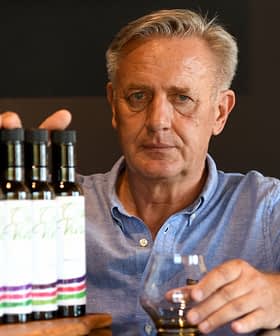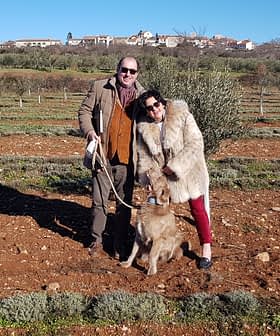Croatia Wants Its Olive Farmers to Organize
The minister of agriculture said cooperatives would help the sector by allowing producers to benefit from financial support and other measures.
The Croatian agriculture minister, Marija Vučković, has announced that the Ministry is working on changes in the bylaws that apply to producer organizations.
The administration is slow, and the previous conditions were too hard for most producers to meet. But new conditions will be more flexible.
The goal of the changes is to encourage farmers and producers to create sector organizations which, the minister believes, would help growth and development by allowing members to benefit from financial support and other measures, and guide them in preparation for tenders connected to the E.U.‘s Rural Development Program.
While in the E.U. olive farmers’ groups were important in the development of the sector, Croatian olive producers have traditionally resisted organizing, and previous attempts to change the situation have yielded few results.
The reasons seem to be the small size of an average producer and an unwillingness to team up, leading to a lack of support from the local or national government.
See Also:The Best Olive Oils from CroatiaThe existing criteria for forming agricultural organizations have been hard for olive farmers to meet. There needs to be a minimum of seven members, 150 hectares of land, 50 tons of produced oil or 3 million Croatian Kuna ($437,802) of annual sales income. Seventy-five percent of a farm’s production needs to go through the organization.
Croatian olive farmers usually own relatively small pieces of land and keep a significant part of the produced oil for personal consumption.
There has never been a nation-wide association of olive farmers that represented their needs, and that has led former agriculture ministers to, at various times, characterize the olive sector as unimportant, according to Agrobiz.
As the new code of organizations is being prepared, olive oil producers take different views of what it can do for them.
Radoslav Bobanović, the director of a cooperative, is optimistic. “I salute the efforts and the fact that the legislature is working on changing the Code. The administration is slow, and the previous conditions were too hard for most producers to meet. But new conditions will be more flexible,” he said.
Tomislav Najev, an owner of a family farm, on the other hand, is skeptical.
“I am not an optimist when it comes to this. At the age of 54, I count myself among the older olive oil producers, and they have had bad experiences with cooperatives in the past. First, they were forced into coops, and then most of them went bankrupt, and those that are left are struggling financially,” said Najev.
“I don’t think olive oil producers are interested in organizing. We don’t care, the system works as it is,” he added. “Oil producers get small but dependable financial backing from the government, which is exempt from taxes. There are no obligations and no control. We have also established good sales channels.”
Bobanović argued there is an untapped potential in the collective strength of the country’s smaller producers.
“There are currently 10 million olive trees in Croatia, but I believe there is room for 20 million more, and the production is boutique — not industrial. Istria could form one organization — in Dalmatia, there could be three or four organizations — and each island forms a separate organization. They could pool their resources, buy equipment, tractors, an olive mill. They could brand themselves, and meet E.U. standards.”








